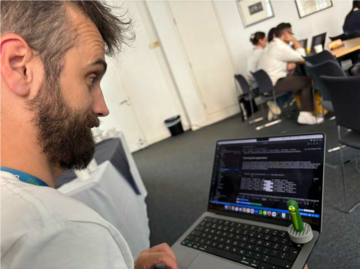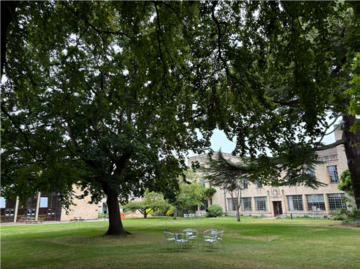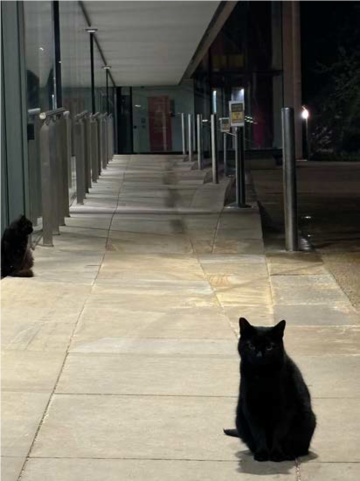Eugenio Torres Flawia was awarded a bursary to attend the Digital Humanities Oxford Summer School in 2024. To join the mailing list and learn about the next summer school sign up here. Read about Eugenio's experience at the summer school here:
Attending the DHOxSS 2024 felt like unraveling a complex blend of code, culture, and history, a journey that left me deeply inspired and transformed. As a bursary recipient, I stepped into the corridors of Oxford’s age-old spires, armed with the knowledge that this week would be one of intensive intellectual cross-pollination, hands-on craftwork and the rich explorations of digital discourse. In this city’s grand mosaic, where ancient tradition meets modern data streams, I discovered both learning and profound inspiration.

Photo by Eugenio Torres Flawia
Our sessions began with Python 101, which was perfect for both beginners and those seeking a refresher. The engaging lectures very quickly transitioned into hands-on exercises, ensuring that theoretical concepts were grounded in practical applications. These activities were guided by the outstanding Kaspar von Beelen, Mariona Coll Ardanuy and Federico Nanni.
One of the highlights of the week was mastering foundational text processing and data structures. Learning how to manipulate text formats, clean datasets, and work with tabular data was invaluable. I
found myself gaining confidence as we explored increasingly complex workflows, guided by the patient and knowledgeable faculty. Understanding word embeddings, language modeling, and constructing NLP pipelines offered me a fresh perspective on analyzing historical documents and other archival materials at scale.
Machine Learning and quantized models
Halfway through the week, we shifted focus to advanced topics such as machine learning, foundation models, and transfer learning. The practical insights on fine-tuning models like Ollama for archival datasets were gamechanging for me. I left with a clear understanding of how I could use these tools to automate and enhance the processing of historical records, a task, that I immediately realized, would often feels insurmountable without the aid of modern technology.

Photo by Eugenio Flawia Torres
Throughout the program, the teaching staff created a supportive and inclusive learning environment. Questions were welcomed and met with thoughtful, thorough responses, and I greatly
appreciated the optional catch-up sessions each afternoon. These sessions provided additional time to revisit complex concepts, solidify our skills, and collaborate with peers who brought diverse experiences and perspectives. The camaraderie we developed made the week even more meaningful and underscored the collaborative spirit of digital scholarship.
Equally memorable was the chance to experience the beauty and history of Oxford. The city itself was a fitting backdrop for our studies, blending centuries-old traditions with cutting-edge scholarship. From the grandeur of the colleges to the charm of the local cafes, every moment in Oxford added a layer of richness to the program. The accommodations were very comfortable, the facilities were modern, and the surrounding environment inspired me to engage deeply with the material.

Photo by Eugenio Torres Flawia
It is clear that the DHOxSS has provided me with essential tools for my archival research and teaching DHs. I am already integrating what I learned into my college curriculum, and I feel better equipped to guide my students in utilizing digital methodologies for humanities research. This program has broadened my perspective, and I am eager to continue exploring how technology can transform the way we approach historical data.
The human component
The combination of high-quality instruction, innovative tools, and a supportive academic community made the DHOxSS an unforgettable experience. This was made possible by the amazing staff, whose kindness and constant support truly set this program apart. I am already looking forward to returning in 2025 to continue building on this foundation. For anyone considering a foray into digital humanities or seeking to deepen their existing knowledge, this summer school offers an unparalleled opportunity to do so.

Photo by Eugenio Torres Flawia